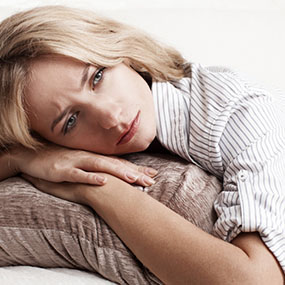 Allergic reaction to various substances in the environment can make you feel sick. Dust mites, pollen, weeds, and many other particles can trigger an allergic reaction any time, but most especially during some seasons when attacks seem to be more frequent. Common symptoms of allergies include runny nose, sneezing, and itchy eyes. Yet, can allergies make you tired? How can you get through? Read on to learn more about the relation between allergies and tiredness.
Allergic reaction to various substances in the environment can make you feel sick. Dust mites, pollen, weeds, and many other particles can trigger an allergic reaction any time, but most especially during some seasons when attacks seem to be more frequent. Common symptoms of allergies include runny nose, sneezing, and itchy eyes. Yet, can allergies make you tired? How can you get through? Read on to learn more about the relation between allergies and tiredness.
Will Allergies Make You Tired?
Yes, allergies can make you feel tired. Aside from the typical allergy symptoms like runny nose, other symptoms like fatigue, difficulty breathing and sinus pain can also be due to allergies.
1. Immune System Reactions
Many individuals are not aware that symptoms like tiredness, irritability, and moodiness may be due to seasonal allergies. How could that happen? Experts explain that allergies can cause immune system reactions that affect your energy levels, including your moods. It can make you feel too tired to get out of bed and make you feel irritable.
Allergens that trigger your immune system reactions cause the release of chemicals called histamines. These substances can slow down your brain function and make you feel moody and depressed. They can also cause sleep disturbance, resulting in excessive daytime fatigue. Sleep is often disturbed when people experience nasal stuffiness and difficulty breathing, which are also common symptoms of allergies. Thus, seasonal allergies have been linked to chronic fatigue syndrome.
2. Allergy Medications Also Matter
Can allergies make you tired? Yes and the culprits are not limited to allergy itself. The medications you are taking to relieve your symptoms may also be contributing to your extreme tiredness. Many over-the-counter anti-allergy medications contain anti-histamines like diphenhydramine hydrochloride, which have sedating properties. This ingredient can be found in many cold medications.
Additionally, many anti-allergy preparations also contain a decongestant called pseudoephedrine, which has stimulant properties that can cause insomnia. Thus, you may feel tired the next day and make you feel sick even more.
How to Deal With Tiredness Caused by Allergies
The answer to the question, can allergies make you tired, is yes. Your allergies, along with your medications, can make you feel tired. The best remedy for tiredness is to control your allergies.
1. Common Treatments
First, get tested by a specialist to find your allergen, then clear or control that substance in your home and office environment. Second, the doctor may also prescribe an antihistamine and other medications such as a leukotriene modifier to control your immune system function. If that doesn't work, you may take some allergy shots to alleviate the symptoms.
2. Ensure an Uninterrupted Sleep
To feel less tired, it is necessary for you to get enough sleep. Being able to get uninterrupted sleep will improve the quality of your life. To improve sleep, you must be able to breathe well at night by using topical steroids as nasal spray. These will relieve nasal congestion and make you breathe and sleep better at night, thus preventing tiredness during daytime. Some experts also recommend taking vitamin C supplements, which have natural antihistamine effects.
3. Nasal Irrigation
Allergy experts recommend nasal irrigation as first-line treatment for allergy symptoms, since it is often more effective than oral medications, or it can also be used with traditional treatments. The less congested you are, the less likely you'll feel eye discomfot and headache, which can all contribute to tiredness.
4. Deal With Drug-Related Sleepiness
Can allergies make you tired? Yes, medications with antihistamines and decongestants can make you feel sleepy, as discussed above. Even nasal sprays, which are as effective as oral medicines, can make you feel tired. To deal with such kind of sleepiness and tiredness, remember to not take this drug beyond the recommended dose. Just avoid driving or operating heavy machinery while taking these medicines.
5. Home Care Options
Non-medical treatments for allergies include avoiding substances that trigger allergic reactions.
- In certain seasons, you can try closing windows or staying indoors to avoid environmental allergens like pollen.
- Try to make sure the room is well-ventilated and maintain a humidity level less than 50% in your office. Make your home and work area dust-free.
- While driving, keep car windows shut, and use air conditioning. If you work outdoors, wear a face mask. When you come back home, shower and change your clothes immediately.
- Besides, you can ask your doctor about taking regular immunotherapy shots. These will help you develop resistance to allergies and reduce your need for using oral and/or nasal medications.
